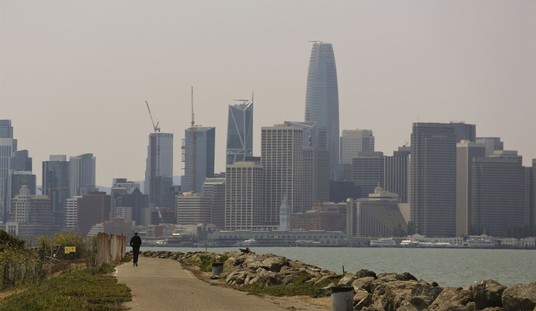If this lacks the charm of Cal Worthington and his dog Spot, it’s by design from the folks at Reason TV. Uncle Sugar wants to sell you a car you can’t afford by using taxpayer subsidies to hyperinflate the value of your used car. What could go wrong? No one’s complaining … especially the people who will eventually pay the bill for the subsidies:
Nor is this the only problem with C4C. Legal Insurrection has a good post in our Green Room detailing the findings of Edmunds.com, which researched the effects of market distortion by government intervention in the trade-in market. In short, C4C has made cars more expensive by artificially driving up demand in the short term:
“Since the program launched, we’ve seen that shoppers are getting less of a discount off sticker price for new cars,” notes Senior Analyst Michelle Krebs in her report on Edmunds’ AutoObserver.com. “In some cases, they are choosing less expensive trim levels and option packages than had been typical in recent months, but paying more for them.”
And Edmunds.com notes that the program probably wasn’t necessary anyway, especially in August:
“In truth, this program launched at the worst possible time of the year,” opined Edmunds.com CEO Jeremy Anwyl. “The annual summer sell-down typically creates a rush of activity for the industry, and this year that rush came right after automakers cut production in response to the floundering economy. It’s a simple case of supply and demand, bolstered by a reduced level of negotiation on the part of excited clunker traders. Add to this the automakers’ unseasonable reduction in incentives and the message is clear: if you buy a car this summer, you should expect to pay higher prices.”
In essence, taxpayers subsidized higher prices, and in the end only encouraged people who may have bought a car anyway, either now or in the next few months. On top of that, the C4C program eliminated low-cost vehicles from the resale market, which will make it more difficult for low-income earners to buy their own transportation. It will also raise the prices of vehicles left in that market, first by setting an artificially high trade-in value at dealers, and second by making used cars more scarce. Thanks to that scarcity, used car parts will cost more, too.
That’s not the only damage it will do, either:
Vehicles already were lined up for one of the weekly auto auctions benefiting Texans Can, a charity that helps at-risk teenagers and their families, when prospective donors started to call, saying they had changed their minds.
“They said they went ahead and traded it in for the ‘cash-for-clunkers’ program,” said Cheryl Rios, vice president of the Dallas-based charity that serves as many as 6,000 students. She estimates Texas Can already has lost $75,000 to the federal program.
While “cash-for-clunkers” has been a huge hit with car buyers looking to snap up rebates of up to $4,500 for trading in gas-guzzlers for new fuel-efficient cars, some charities that rely on vehicle donations for funding say they’re receiving fewer cars and trucks.
You’d think that people would have learned a lesson about the government distorting private markets for social engineering after the collapse of the housing bubble. Apparently, voters need to teach the lesson to Congress a little more forcefully.
Update: Well, sugar. I forgot the link to Reason TV. It’s fixed now.








Join the conversation as a VIP Member